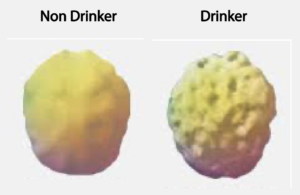Why Does Alcohol Cause Such a Big Problem?
Alcohol is one of the most widely consumed substances globally, deeply embedded in social traditions, celebrations, and even cultural norms. Despite its prevalence and acceptance, alcohol poses significant risks to individuals and society at large. From its impact on health to the strain it places on communities, alcohol is a leading cause of preventable harm.
1. The Impact on Health
Alcohol consumption is directly linked to numerous health issues, ranging from immediate risks to chronic, long-term conditions.
Short-Term Health Risks
- Impaired Judgment and Coordination: Even small amounts of alcohol can impair motor skills and decision-making, leading to accidents, injuries, or risky behaviors.
- Alcohol Poisoning: Excessive consumption in a short period can result in alcohol poisoning, which can be life-threatening.
Long-Term Health Risks
- Liver Damage: Chronic drinking is a leading cause of liver conditions such as cirrhosis and fatty liver disease.
- Heart Problems: Prolonged alcohol use can lead to hypertension, arrhythmias, and cardiomyopathy.
- Cancer: Alcohol is a known carcinogen, increasing the risk of cancers in the mouth, throat, liver, and breast.
Brain Damage – Even with Moderate Drinking
One of the most concerning aspects of alcohol is its effect on the brain. While heavy drinking is widely acknowledged as damaging, even moderate consumption can lead to brain damage over time:
- Memory Impairment: Alcohol disrupts the hippocampus, the brain region responsible for memory formation. Frequent drinking, even in moderation, can lead to long-term memory deficits.
- Neurodegeneration: Alcohol accelerates the loss of brain cells and can shrink brain volume, impairing cognitive functions such as problem-solving, attention, and emotional regulation.
- Impact on Adolescents: In younger individuals, whose brains are still developing, even moderate drinking can cause lasting changes in brain structure and function.
- Thiamine Deficiency: Alcohol interferes with the absorption of vitamin B1 (thiamine), which is crucial for brain health. Prolonged deficiency can lead to Wernicke-Korsakoff Syndrome, a severe neurological condition involving confusion, poor motor coordination, and memory loss.
2. Alcohol’s Effect on Mental Health
Alcohol is often used as a coping mechanism for stress, anxiety, or depression. However, its use can exacerbate these issues:
- Mood Disorders: Alcohol can intensify feelings of sadness and anxiety, creating a cycle of dependence.
- Addiction: Moderate drinking can sometimes escalate into alcohol use disorder (AUD), a condition that takes a significant toll on an individual’s mental and physical well-being.
- Cognitive Decline: Regular alcohol use can lead to reduced mental sharpness, slower reaction times, and a higher risk of dementia.
3. Societal Challenges
Beyond personal health, alcohol also has significant societal impacts:
- Accidents and Injuries: Alcohol is a leading factor in car accidents, falls, and workplace injuries.
- Violence and Crime: Alcohol consumption is linked to aggressive behavior, domestic violence, and other criminal activities.
- Economic Costs: Healthcare, law enforcement, and lost productivity due to alcohol-related issues cost billions annually.
4. Alcohol’s Social Acceptance
One reason alcohol continues to cause such widespread problems is its societal acceptance. Many people underestimate its risks because drinking is normalized, even glamorized, in media and culture. Social pressure to drink can also lead individuals to overconsume without fully understanding the consequences.
Conclusion
Alcohol’s far-reaching impact on health, brain function, mental well-being, and society highlights why it remains such a significant problem. While moderate drinking is often perceived as harmless, its risks, including potential brain damage, cannot be ignored. Raising awareness about these dangers, promoting healthier coping mechanisms, and fostering a culture that prioritizes informed choices are essential steps toward addressing the challenges posed by alcohol consumption.





